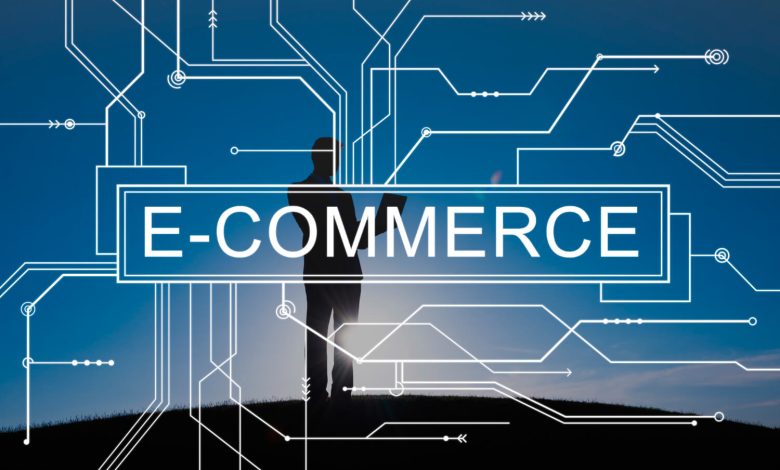The Ultimate Guide to Effective E-commerce Marketing Strategies (2023)

In the dynamic landscape of the digital marketplace, effective strategies are vital for the triumph of your eCommerce business. With the rise of online shopping, harnessing SMS marketing, influencer marketing, ecommerce marketing tips, and other innovative techniques is essential to thrive as a forward-thinking marketer in the realm of e-commerce marketing strategies. From enhancing your product pages to building a compelling eCommerce brand, and from crafting enticing subject lines to creating a seamless customer journey through your online store, these strategies hold the power to boost customer loyalty, drive lead generation, and increase conversions while optimizing your marketing budget.
Join us as we delve into the world of eCommerce marketing, exploring tactics to engage loyal customers, optimize your affiliate marketing, and empower your eCommerce store to prompt customers to complete their purchases.
What Is an E-Commerce Platform?
An e-commerce platform is a virtual marketplace that enables businesses to showcase and sell their products or services online. It serves as a digital storefront, allowing customers to browse, select, and purchase items from the comfort of their homes. Popular e-commerce platforms include Shopify, WooCommerce, Magento, and BigCommerce, each offering unique features to cater to different business needs.
Why bother with Ecommerce Marketing Strategies
E-commerce website marketing is crucial because it amplifies a business’s online visibility, drives traffic, and converts visitors into paying customers. With millions of websites vying for attention, strategic marketing efforts ensure your e-commerce platform stands out and reaches the right audience. Effective marketing increases brand awareness, customer engagement, and ultimately, revenue.

What is an Ecommerce Marketing Strategy?
E-commerce website marketing is crucial because it amplifies a business’s online visibility, drives traffic, and converts visitors into paying customers. With millions of websites vying for attention, strategic marketing efforts ensure your e-commerce platform stands out and reaches the right audience. Effective marketing increases brand awareness, customer engagement, and ultimately, revenue.
Next Steps To Ecommerce Website Success
After setting up your e-commerce platform, the next steps involve refining your strategy. This includes identifying your target audience, conducting market research, and analyzing your competitors. Additionally, focus on optimizing your website’s user experience, ensuring seamless navigation and a secure checkout process.
How to Make an Optimized E-commerce Marketing Strategies
Crafting an effective e-commerce marketing plan involves several key steps. Start by defining your business goals, whether it’s increasing sales, expanding your customer base, or launching a new product line. Conduct thorough market research to understand your audience’s preferences and pain points. Based on this information, outline a comprehensive plan that incorporates various marketing channels and tactics.
Executing an Ecommerce Marketing Plan
Execution is where your e-commerce marketing plan comes to life. Implement SEO strategies to improve your website’s search engine rankings, create high-quality content that resonates with your audience, and leverage social media platforms to engage with customers. Email marketing campaigns, influencer collaborations, and paid advertising also play significant roles in driving traffic and conversions.
10 Effective ecommerce strategies that drive sales
- Personalized Recommendations: Implement AI-driven recommendation systems to suggest products based on user behavior.
- Abandoned Cart Recovery: Send automated emails to remind customers about items left in their carts.
- Social Proof: Showcase reviews and testimonials to build trust and credibility.
- Limited-time Offers: Create a sense of urgency with time-sensitive promotions.
- User-generated Content: Encourage customers to share their experiences through images and reviews.
- Mobile Optimization: Ensure your website is responsive and user-friendly on mobile devices.
- Upselling and Cross-selling: Recommend complementary or upgraded products during the buying process.
- Loyalty Programs: Reward repeat customers with exclusive discounts or perks.
- Influencer Partnerships: Collaborate with influencers to reach wider audiences.
- Remarketing Campaigns: Show tailored ads to users who have previously visited your site.
What’s the difference between ecommerce and digital marketing?
E-commerce refers to the online buying and selling of products or services, while digital marketing encompasses various online strategies to promote products, increase brand visibility, and drive conversions. E-commerce is a subset of digital marketing, with the latter involving a broader range of tactics such as content marketing, social media marketing, and search engine marketing.

What does a marketing plan for ecommerce look like?
A comprehensive marketing plan for e-commerce includes:
- Clear business objectives
- Target audience definition
- Competitor analysis
- Chosen marketing channels (social media, content, email, etc.)
- Budget allocation for paid advertising
- SEO strategy for improved visibility
- Content creation and distribution plan
- Metrics for measuring success (conversion rates, traffic, ROI, etc.)
Is It Possible to Market an eCommerce Site With No Money?
While having a budget can accelerate your marketing efforts, it’s possible to market an e-commerce site with minimal funds. Focus on organic strategies like SEO, content marketing, and social media engagement. Leverage free online tools, collaborate with micro-influencers, and tap into your existing customer base through referral programs. Consistent effort and creativity can yield results even with limited resources.
How can you set the right goals?
Setting the right goals for your many ecommerce marketing is the practice that is crucial. Use the SMART (Specific, Measurable, Achievable, Relevant, Time-bound) framework to define clear and realistic objectives. Whether it’s increasing sales by a certain percentage, gaining a specific number of email subscribers, or boosting website traffic, well-defined goals provide direction and allow you to track your progress effectively.
FAQs
What are ecommerce marketing strategies?
Proven Ecommerce marketing strategies are a set of planned actions and tactics aimed at promoting and selling products or services through online platforms. These strategies encompass various digital marketing techniques, including search engine optimization (SEO), content marketing, social media marketing, email marketing, influencer collaborations, paid advertising, and more. The goal is to attract targeted traffic to e-commerce websites, engage potential customers, and convert them into loyal buyers.
What are the 4 P’s of marketing in ecommerce?
The 4 P’s of marketing, also known as the marketing mix, are crucial elements that businesses consider when designing their marketing strategies, even in the realm of e-commerce:
- Product: This refers to the physical product or service being offered, including its features, quality, and design.
- Price: This involves setting a competitive and profitable price point for the product, considering factors like production costs, competitor pricing, and perceived value.
- Place: In e-commerce, “place” refers to the online platforms and channels where the product is available for purchase, including the e-commerce website, online marketplaces, and social media.
- Promotion: This pertains to the marketing activities used to promote the product, such as advertising, content marketing, social media campaigns, and email marketing.
What are the main 5 marketing strategies for the online world?
The main marketing strategies for the online world include:
- Search Engine Optimization (SEO): Optimizing website content to rank higher in search engine results and drive organic traffic.
- Content Marketing: Creating valuable and relevant content to engage the target audience, build trust, and establish authority.
- Social Media Marketing: Utilizing social platforms to reach and engage with a wide audience, build brand awareness, and foster customer relationships.
- Email Marketing: Sending targeted emails to nurture leads, promote products, share updates, and encourage repeat purchases.
- Pay-Per-Click (PPC) Advertising: Running paid ads on search engines and social media platforms to drive immediate traffic and conversions.
What is 7Ps of marketing?
The 7Ps of marketing is an extended framework that builds upon the traditional 4 P’s. In addition to Product, Price, Place, and Promotion, the 7Ps include:
- People: Refers to the people involved in the delivery and consumption of the product or service, including staff, customer service, and customers themselves.
- Process: Encompasses the processes and procedures involved in delivering the product or service, ensuring efficiency and quality.
- Physical Evidence: Includes the tangible and intangible elements that contribute to the customer’s perception of the product or service, such as packaging, branding, and user experience.
What are the main types of online marketing?
The 7Ps of marketing is an extended framework that builds upon the traditional 4 P’s. In addition to Product, Price, Place, and Promotion, the 7Ps include:
- People: Refers to the people involved in the delivery and consumption of the product or service, including staff, customer service, and customers themselves.
- Process: Encompasses the processes and procedures involved in delivering the product or service, ensuring efficiency and quality.
- Physical Evidence: Includes the tangible and intangible elements that contribute to the customer’s perception of the product or service, such as packaging, branding, and user experience.
In Conclusion
In the realm of e-commerce, marketing strategies are the heartbeat that propels your online business to success. As e-commerce marketers, you are the architects of your brand’s digital journey, designing an effective e-commerce marketing plan that harmoniously weaves together various marketing tactics. From time-tested best ecommerce marketing strategies to cutting-edge tools and techniques, optimizing your digital marketing arsenal is essential for driving top e-commerce sales and securing your place in the competitive e-commerce landscape.
Every ecommerce marketing manager understands that email marketing strategy is one of the cornerstones of a successful e-commerce venture. Alongside email campaigns, mastering e-commerce SEO, crafting compelling content, and seamlessly navigating through every facet of the marketing funnel are integral parts of your e-commerce marketing plan. By fine-tuning your strategies, you not only expand your successful ecommerce marketing strategy but also enhance your brand’s visibility, foster customer loyalty, and reach your marketing goals.
The current e-commerce marketing landscape offers a plethora of opportunities for growth, and proven ecommerce marketers are your guides on this transformative journey. Leverage the power of marketing automation, harness the potential of affiliate marketing programs, and make the most of e-commerce marketing tools that align with your objectives. Remember, each marketing tactic you employ, whether it’s text message marketing, influencer collaborations, or optimizing your e-commerce platform, contributes to the intricate tapestry of your marketing success.
In the ever-evolving e-commerce ecosystem, staying updated with the latest trends, techniques, and tools is pivotal. Collaborating with a dedicated e-commerce marketing agency, optimizing your website for maximum visibility, and continuously fine-tuning your strategies will help your business grow and thrive. As you navigate the seas of e-commerce marketing, remember that each successful e-commerce sale, each loyal customer gained, and each marketing milestone achieved is a testament to the power of well-executed and best e-commerce marketing strategies. So, continue to innovate, adapt, and optimize – for your e-commerce success knows no bounds.





